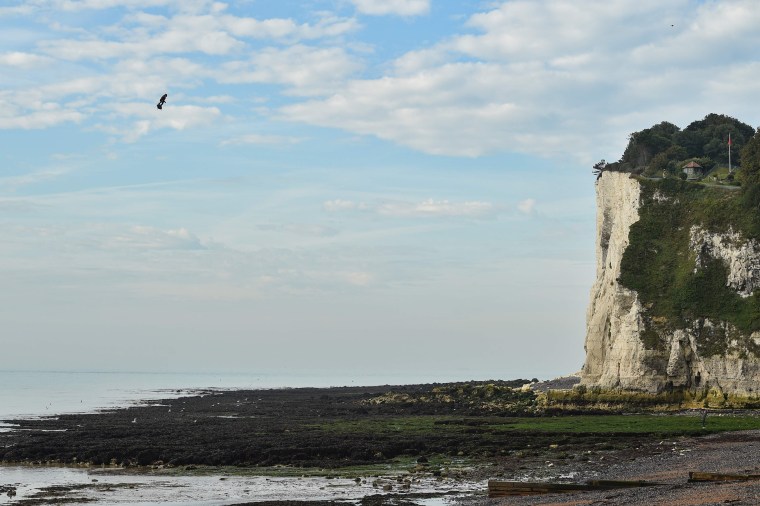SANGATTE, France — French inventor Franky Zapata on Sunday succeeded in crossing the English Channel on a jet-powered hoverboard he designed, after a previous ended with him falling into the sea.
Standing on a platform powered by five small jet engines and carrying kerosene in a backpack, Zapata took off from Sangatte, just outside Calais in France early Sunday morning, trailed by three helicopters.
He reached Britain just over 20 minutes later, waving to onlookers before landing safely in Saint Margaret's Bay, close to Dover on Britain's southern coast, according to French television images.
"For the last five to six kilometres I just really enjoyed it," Zapata told reporters on arrival. "Whether this is a historic event or not, I'm not the one to decide that, time will tell."
"We made a machine three years ago...and now we've crossed the Channel, it's crazy," he said, before breaking into tears.
Zapata's biggest challenge was refuelling with another backpack halfway through the journey across the Strait of Dover, which required landing on a platform mounted on a boat.
On his first attempt to make the crossing on July 25, Zapata was knocked off balance in the process and fell. The inventor used a bigger boat and platform this time.
Zapata, 40, is dubbed "Flyman" by French media.
He wowed crowds during France's Bastille Day celebrations on July 14 by soaring over a military parade in Paris on the device.
He told Le Parisien newspaper last month that Bastille Day was “easy” in comparison to crossing the English Channel.
“I used 3 percent of the capacity of the machine, while for crossing the Channel I’ll need 99.9 percent,” he said, adding that he believed he had a 30 percent chance of making it across to England.
The hoverboard is powered by five small jet engines and has a 1500 horsepower, according to Reuters. Zapata steers his craft by leaning forward or backward and controls the thrust with a throttle, the news agency added.
At first, French maritime authorities refused to permit the flight saying it was too dangerous to cross because of the number of vessels in the Channel, according to Le Parisien.
The Channel is one of the world's busiest shipping lanes.
The former jet ski champion's first bid to cross the approximately 22 mile stretch of water on a hoverboard was meant to coincide with the 110th anniversary of the first-ever flight across the English Channel in an airplane, achieved by Louis Blériot.
